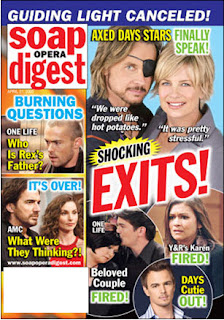 |
| "As Jax said, better an outlaw than a stiff." |
The Bone Season (The Bone Season #1)
Samantha Shannon
480 pages
Summary Link
Rating: 6.5
+ 10 points to Ravenclaw for coming up with a plausible reason why people in 2059 England would dress like Victorians.
WHAT I EXPECTED:
I hadn't heard the hype for this, so much as I had heard the hype about the hype. Apparently everyone thought this might be the next Harry Potter-type fantasy epic? I mostly avoided caring, because the word "clairvoyant" in a blurb makes me run away almost as fast as the word "dragon", but eventually I grave in. What can I say, I'm a sucker for future dystopias, even though I assumed it would be a fairly boilerplate teen girl paranormal dystopia. Girl has psychic powers, girl gets captured by oppressive government, romance and rebellion ensues.
WHAT I GOT:
By the zeitgeist, you've bloomed like the ambrosial flower you are, right winsome wunderkind! Welcome to the psychic underground of London. Apparently this has already been optioned for a movie, which makes sense since I kept imagining it set the same way as a steampunk-inspired production of My Fair Lady I saw a few years back. Though with more ghosts. And no actual steampunk, thankfully, since it's 2059 and they have proper electronics and guns.
The Bone Season was exactly what I expected in terms of story outline, but...better. It takes the standard body of a YA paranormal dystopia, then dresses it in new and exciting clothes and shoves it out onto the streets of London. It's one of those stories that sucked me right in and I read it straight through without pause, although it's not without flaws. Shannon's unique, interesting alternate-universe London is easily the the best part of the book, and it's obvious she put major effort into it. The downside is that at times she gets carried away and it overflows with confusing jargon. Sometimes it worked and I fell into the rhythm, while other times I was scratching my head trying to remember what a word meant. Other reviewers have used the phrase "overly-ambitious", which is spot on, but that's leaps and bounds better than "boring". Personally, I vastly prefer an author reaching for something new and different, rather than falling back on the same old stuff, even if they can't quite handle their own creation.
Plus, it's always nice to have a female protagonist without debilitating issues. Paige doesn't spend any time bemoaning being a freak or moping about her lot in life; she's damn good her "voyant" crime syndicate job and she knows it. She's not a particularly original or deep character, but she's strong and doesn't sit around waiting to be rescued. The side characters are interesting as heck too, but they don't get enough development...though since there are supposed to be more books, I'll cut Shannon some slack on the condition she flesh them out more later.
What I disliked most was the super-predictable romance (with a gorgeous forbidden special supernatural being, of course), but if I complained too much about that sort of thing I could never read any YA books ever. It also doesn't come into play until the very end of the book, which is nice, though I'm not sure how much it will piss me off in future books. At least it's not a love triangle. And, to be fair, there wasn't anything objectively wrong with how Shannon handled it, I think I've just overdosed on the whole concept.
The Bone Season practically oozes potential, but only time will tell if it'll live up to it. If Shannon works hard and develops as a writer, she could have a major blockbuster on her hands. On the other hand, if she loses the threads, it could all fall apart by book three. Seven volumes are a lot to manage and it'll take serious chops to pull off, but I'm definitely looking forward to the next one.








